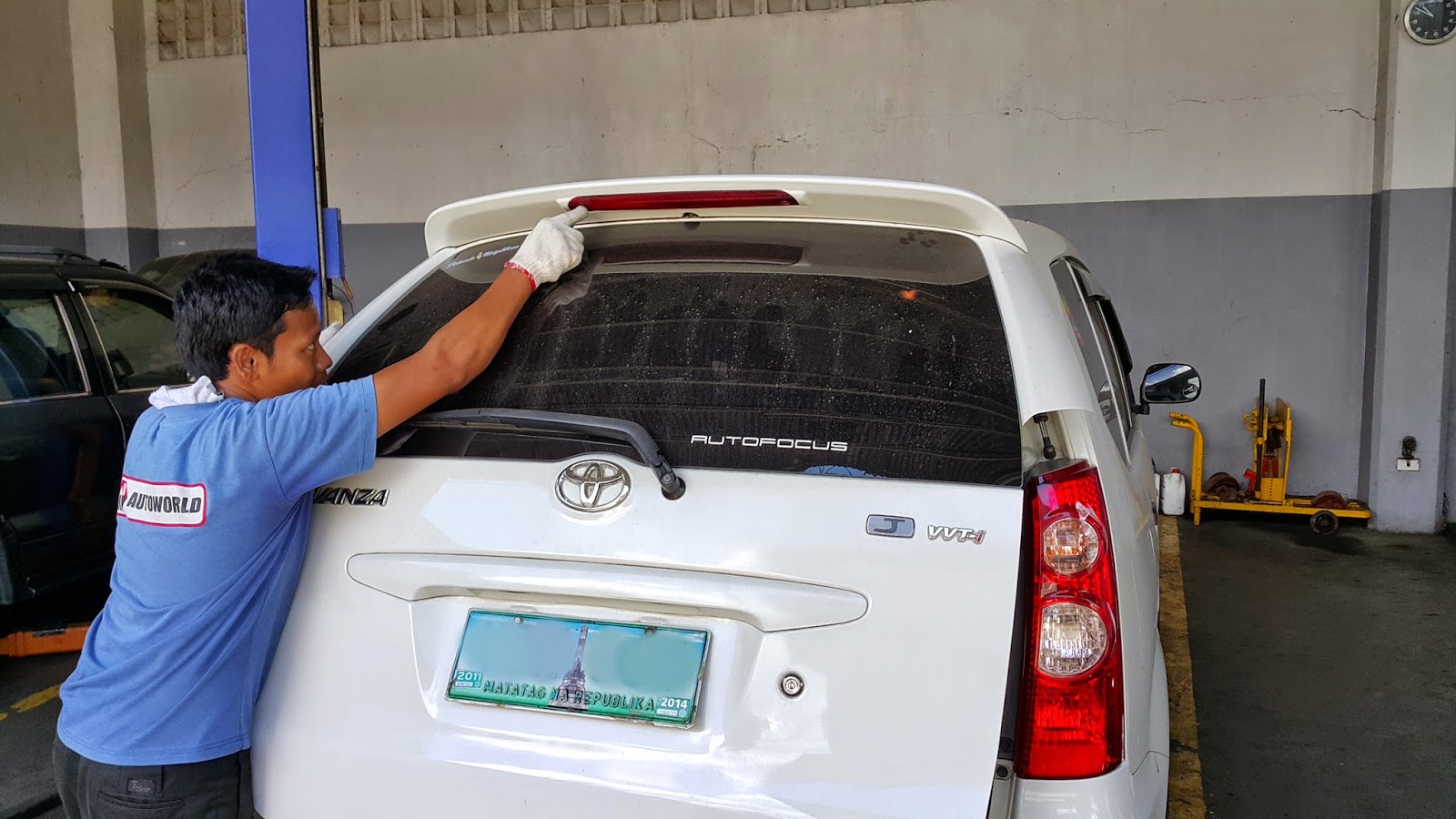 |
| Applying rust proof coating on the rear door of a Toyota Vios |
This question is actually debatable and can garner various answers. The option to rust proof or not really depends on the owner of the vehicle.
Short Answer: OPTIONAL!
To help you decide on whether you would want to rust proof your car, read on to learn more about the pros and cons and whether it is beneficial to have it done.
Generally, car manufacturers today have different types of metal and treatment that protects the car from rust and other elements straight out from the factory. However if a car has been in an accident, and unprotected steel was exposed, there's still a chance of rust occurring.
 | |
|
But what is rust?!
Rust is a form of corrosion. This happens when iron (which is in steel) and oxygen mix with air or water which leads to rust. Eventually, rust over the body of a vehicle will cause it to disintegrate, leaving holes on the body of your car. Corrosion can also occur when dirt or moisture accumulate in a car's body.
A major contributor to rust is salt.
Chemicals on the road, as well as the humidity and huge variations in temperature is also a contributor to rust.
Rust proofing will protect the body of your car from moisture, salt and other harmful elements. Basically, it can lengthen your car's life. To add it also protects other portions of your vehicle such as electrical areas like battery terminals, wiring harnesses, switches and plugs from moisture. Lubrication of moving mechanical parts like brake cables, suspension components, and door hinges is another benefit from having a rust proof. Keeping these areas protected will greatly reduce repair cost and vehicle breakdown.
On the downside, rust proofing is not cheap and can go from P3,750 all the way to P11,000 depending on the make and model of the unit.
Ultimately, the choice is up to you. If you can afford shelling out for a rust proof and want your peace of mind, then by all means do so. There is no harm in making sure that your car is well protected against any elements out there.










